In Spain, there are as many as 120 hundred-year-old restaurants. The term is used to define what used to be called "casas de comidas" (meal houses), although the name was created in France in the second half of the 18th century. "Restaurants" constituted another sort of eating establishment, a new one if we define them as places where one can order a meal from a range of choices at a range of times and eat it on the premises.
About 1765, people rounding the corner of the Rue Bailleul and the Rue des Poulies, just a few blocks east of the Café de la Régence, passed by the innovator’s sign: “Boulanger débite des restaurants divins” (Boulanger sells divine restaurants). Boulanger was originally a soup vendor and certain soups were known as restaurants—literally, “restoratives.” The Encyclopédie defined restaurant as “a medical term; it is a remedy whose purpose is to give strength and vigour.” Thanks to Boulanger and his imitators, these soups moved from the category of remedy into the category of health food and ultimately into the category of ordinary food...Almost forgotten in the spread of restaurants was the fact that their existence was predicated on health, not gustatory, requirements. None the less I can assure you these restaurants found around Spain were certainly founded on gustatory requirements and still do to this very day serve some of the finest food in the country. Here are 10 of the oldest and best restaurants in Spain in no particular order:
1. Botín (C/ Cuchilleros, 17. Madrid) - 1725
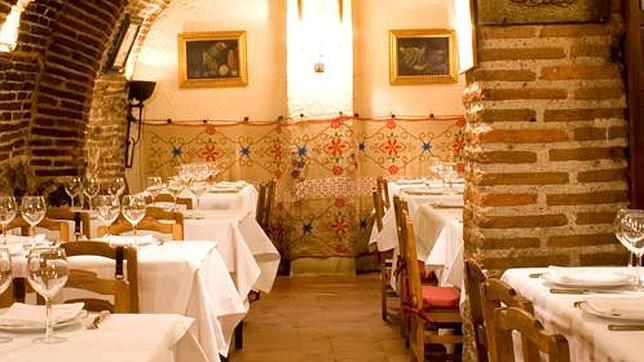
In 1989 the Guinness Book of Records classified it as the oldest restaurant in the world. This establishment in Madrid is the genuine birthplace of suckling pig and lamb, which they continue to roast with holm oak wood in the oven that was used on the date the premises were founded, in 1725. The restaurant was founded by the Frenchman, Jean Botín, and then handed down to his nephews. Since 1930, it has been run by the González Martín family. It achieved the world record as it has been the only restaurant so far that can certify how long it has been a "restaurant" - as we understand it today. Others may have started out as taverns or shops that sold food and later transformed into restaurants.
2. Lhardy (Carrera de San Jerónimo, 8. Madrid) - 1839
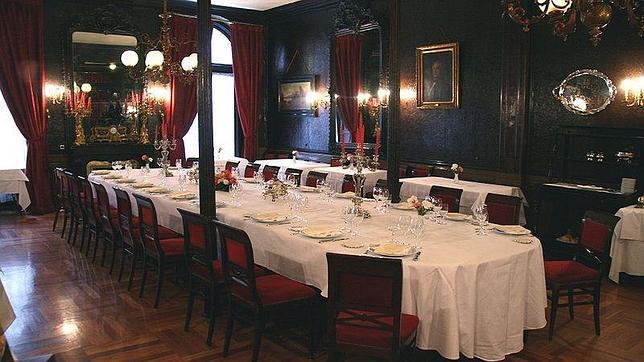
Thanks to Lhardy, founded in 1839 by Emilio Lhardy, gastronomic modernity arrived in Madrid. In a building near the Puerta del Sol, the restaurant is divided into three floors and 6 dining rooms. It is said that Isabel II used to meet her lovers in one of them, the Japanese room. Eating in Lhardy is like travelling back in time, everything is just the same as it was when the establishment first opened.
3. Casa Gerardo (Carretera AS-19, km 8.5. Prendes) - 1882
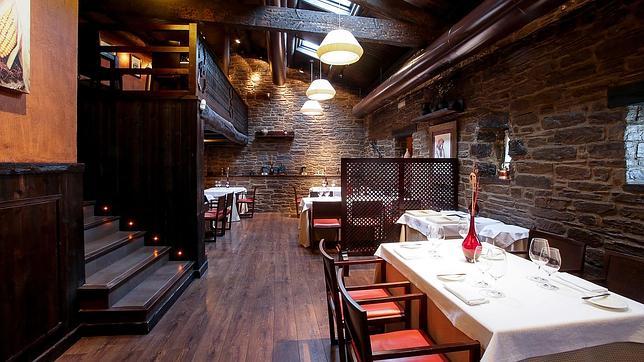
It opened its doors in 1882 and today it is managed by the fourth and fifth generations of chefs. Pedro and Marcós Morán, father and son, are specialists for including Asturias in their dishes. Their most well-known creations are the fabada desgrasada (fat-free bean stew with Spanish sausage) and merluza a la sidra (hake with cider). Their menu also includes room for innovation, and this is reflected in the traditional and new dishes.
4. Casa Duque (Calle Cervantes, 12. Segovia) - 1895
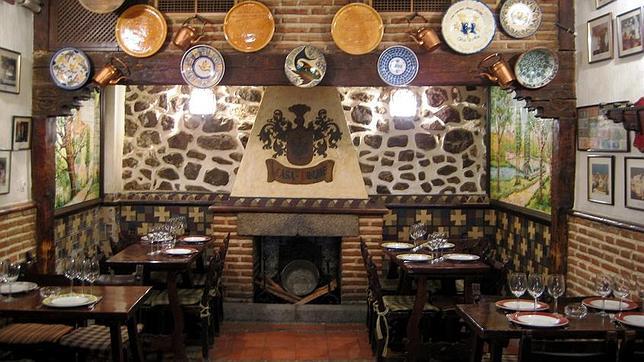
The first meal house in Segovia belongs today to Marisa Duque, the fourth generation of restaurateurs. Keeping to the traditional essence, the typical Segovian menu always features large French beans, Castilian soup and suckling pig. For starters, there is nothing better than some juicy slices of bacon
5. Hotel Santa Catalina (C/ León y Castillo, 227. Las Palmas de Gran Canaria) - 1890
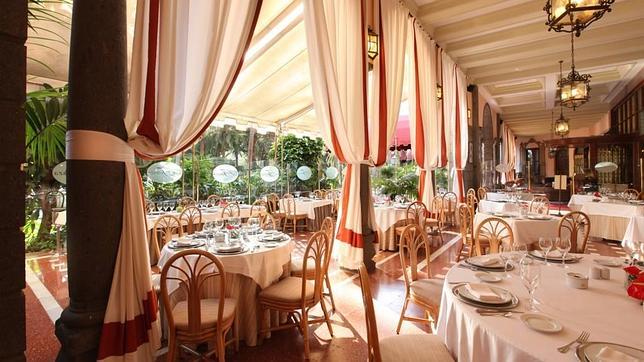
The restaurant that is now managed by José Rojano belongs to the hotel that was initially planned for the English who, looking to make their fortune, used to stopover in the Canary Islands on their way to America. Now the menu has been renewed and, as a consequence of the chef's birthplace, includes creations from the Islands as well as the Basque Country.
6. 7 Portes (Passeig Isabel II, 14. Barcelona) - 1836
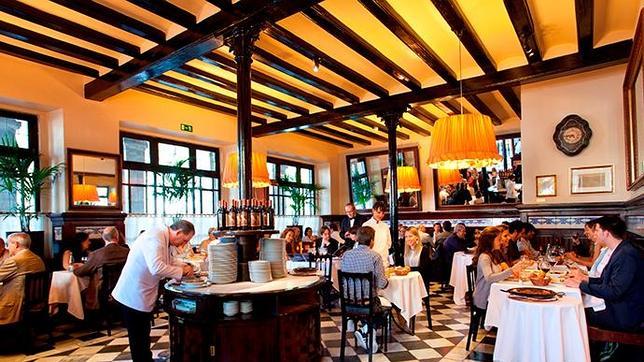
Josep Xifré i Cases was a powerful Catalan businessman in the first half of the XIX century; the richest Catalan at the time. He built the so-called Xifre houses in the Isabel II Promenade in Barcelona and took a hand in the design himself, as he wanted to create buildings with porches similar to those in the Rue Rivoli and the central squares of Paris.
He made his home and office in the new building and decided to place a luxurious café on the site as well. The café had seven doors through which the public could enter, and an eighth entrance for staff and goods.
Nowadays the restaurant is famous for its rice dishes. Politicians and intellectuals have sat at its tables since 1836, but when the restaurant was taken over by the Parellada family, who continue to run it today, it became a meeting point for expert gourmets.
7. Arzak (Avenida del Alcalde José Elosegi, 273. Donostia) - 1897
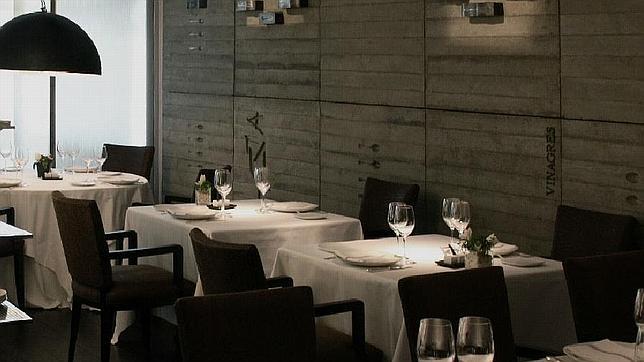
Not everyone knows that Arzak is a hundred years old. It was Juan Mari's grandparents who decided to open a business in Alza (today part of Donostia) which the locals used to call the “highest of vinegars”, because of the quality of the wines served in the restaurant. His mother took a step forward with her baby cuttlefish in their ink or hake in parsley and wine sauce, her son followed in her wake, representing a benchmark in New Basque Cuisine, and now her granddaughter, Elena.
8. Echaurren (C/ del Padre José García, 19. Ezcaray) - 1698
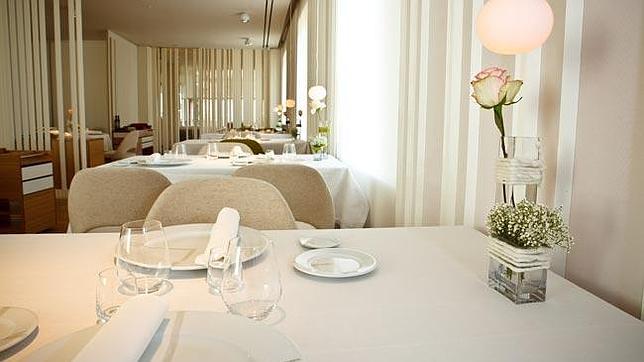
In 1898, Pedro Garcia and Andrea Echaurren decided to remodel their old coach house that served as a refuelling stop for carriages. The imminent arrival of the railroad forced to anticipate the future, to refocus its business and where previously housed the stables and carriages, they decide to install a dining hall taking advantage of the culinary virtues of his wife, Aunt Andrea. It started with them, this proud culinary tradition and hospitality that has endured for five generations.
9. Antigua Taberna Las Escobas de Sevilla - 1386
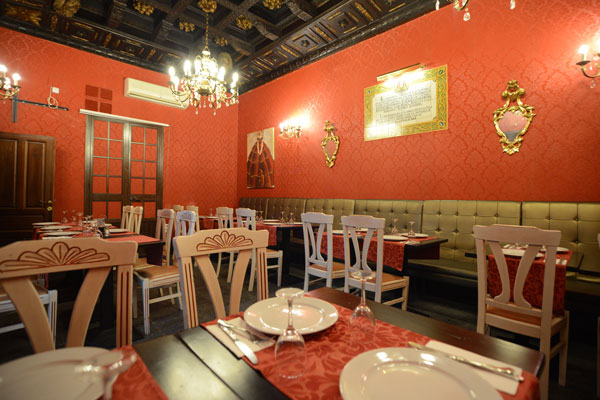
Opposite the Cathedral of Seville, in the heart of the Andalusian capital, as Escobas is a living testimony of the history of Seville. There are writings that rate it as the oldest tavern in Spain, founded in 1386, when it was also grocery shop, where wine was sold and brooms were made and hung from the ceiling.
10. Cal Xarina (Collsuspina - Barcelona) 1550
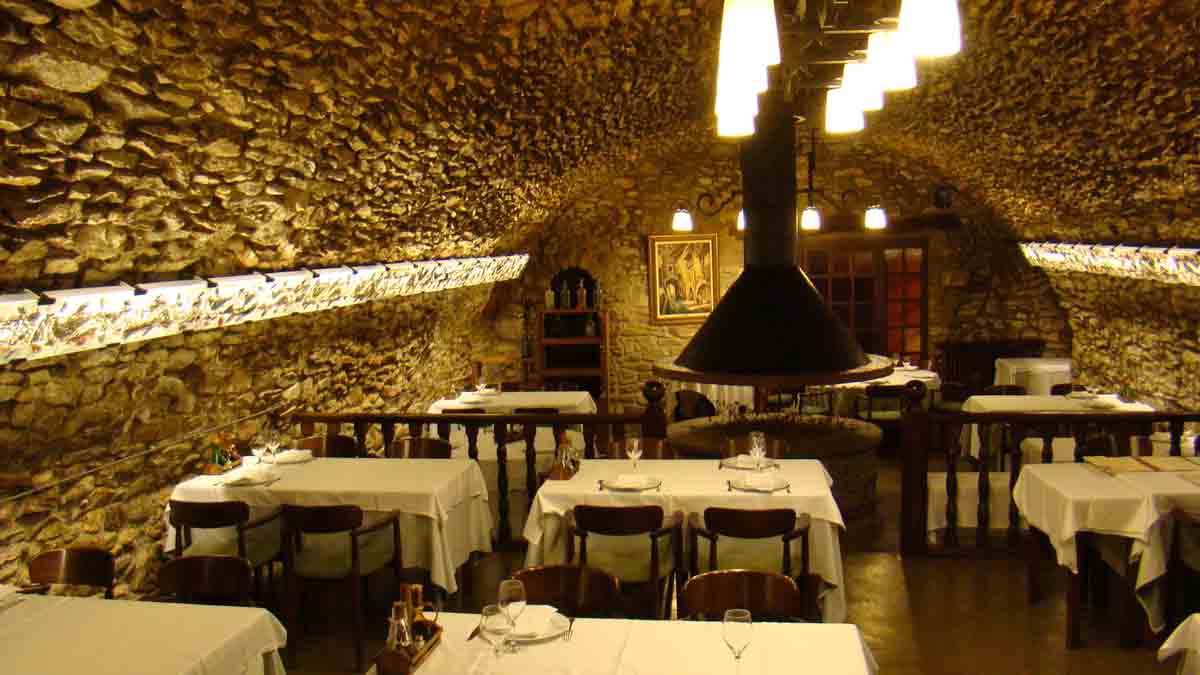
The restaurant Can Xarina of Collsuspina (Barcelona) is a handsome Gothic-Renaissance mansion where you can taste the best flavours of the traditional Catalan cuisine. The restaurant Can Xarina prioritizes local and seasonal produce, so the ingredients are always fresh and high quality (mushrooms, tomatoes, beans, peas, artichokes, etc.). Some of his most characteristic dishes are baked shoulder of lamb, oxtail stew in the pot or preparations with hake and monkfish.
Other Centenary Restaurants in Spain:
Hotel Lleida, Graus, Huesca (1867)
Miramar, Alcúdia, Mallorca (1871)
Mesón de Borleña, Borleña de Toranzo, Cantabria (1834)
Las Cabañas, Peñaranda de Bracamonete, Salamanca (1885)
Venta de Aires, Toledo (1891)
Fonda Europa, Granollers, Barcelona (1771)
Gaig, Barcelona (1869)
Hostal Jaumet, Torà, Lleida (1890)
Hotel Durán, Figueres, Girona (1855)
Hostal Coca, Torredembarra, Tarragona (1820)
Paz Nogueira, Santiago de Compostela, A Coruña (1838)
Café Gijón, Madrid (1888)
El Vinagrero, La Unión, Murcia (1910)
Café Roch, Pamplona, Navarra (1898)
Casa Montaña, Valencia (1836)